Can Air Travel Ever Be Sustainable? Taking Responsibility for Our Carbon Footprint
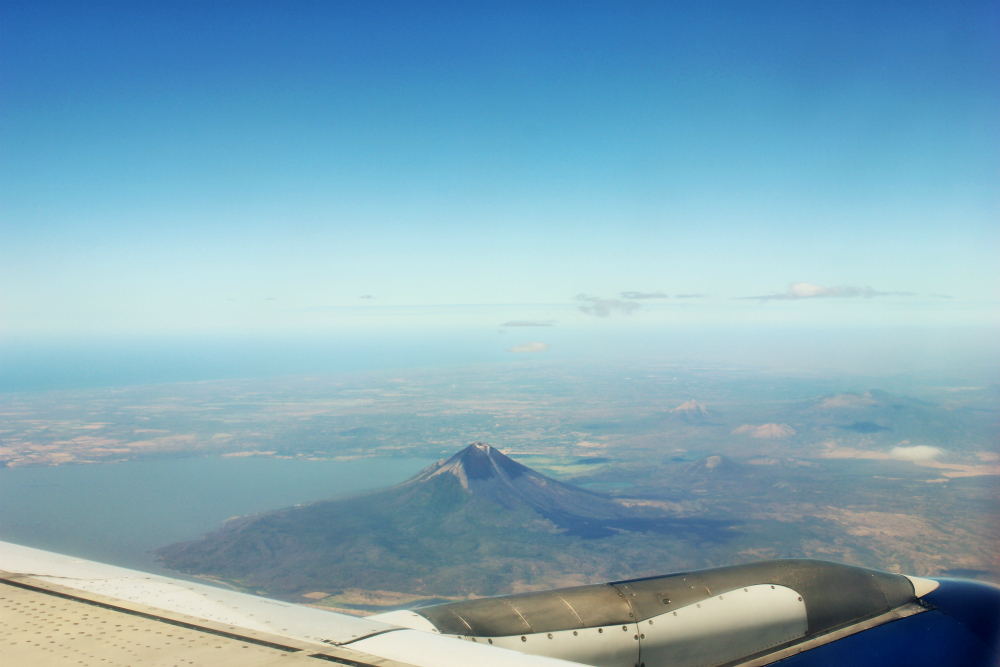
It’s no secret that air travel is harming our environment. Global aviation is responsible for 2% of human induced C02 emissions, and while this figure might seem low, let’s not forget that we’re burning fossil fuels at an unsustainable rate and damaging the environment as a result.
What’s really staggering though is that the demand for air travel is expected to double over the next 20 years. We’re facing a very real risk of over expansion and this increase will only worsen greenhouse gas emissions and local air quality around airports.
We need to find a balance that means we can protect our planet and reduce C02 emissions without sacrificing travel altogether.
But…
“If there’s one thing that holidaymakers don’t want to hear at that one time every year where they have two weeks off to go travelling, it’s that they should be thinking about how to offset their carbon emissions. People want to go away guilt free for their two week holidays.”
That was Callum Thomas, Chair of Sustainable Aviation at Manchester Met Uni, speaking at the London World Travel Market (WTM) 2015. And he was totally right.
As someone who travels frequently and has taken flights back and forth far too many times in the past year, I definitely feel that guilt when it comes to the thought of my own carbon footprint. Long haul flights produce twice as many C02 emissions per mile travelled by each passenger than cars — and short haul flights are even worse, producing three times as many nasty emissions.
As a result? I am conscious about the number of flights I take and I do carbon offset. But if I’m completely honest, it took me a long time to start carbon offsetting because it felt like such a minefield to calculate carbon emissions and find a project to donate to. You can read about all this and how we carbon offset flight here.
Just one round trip flight between Europe and New York will generate 2-3 tonnes of C02 per person. The average European produces 10 tonnes of C02 over an entire year, and the average American closer to 19 tonnes. That’s huge, and burning all of this fuel is damaging our environment and our health.
Read about how we carbon offset flight here.
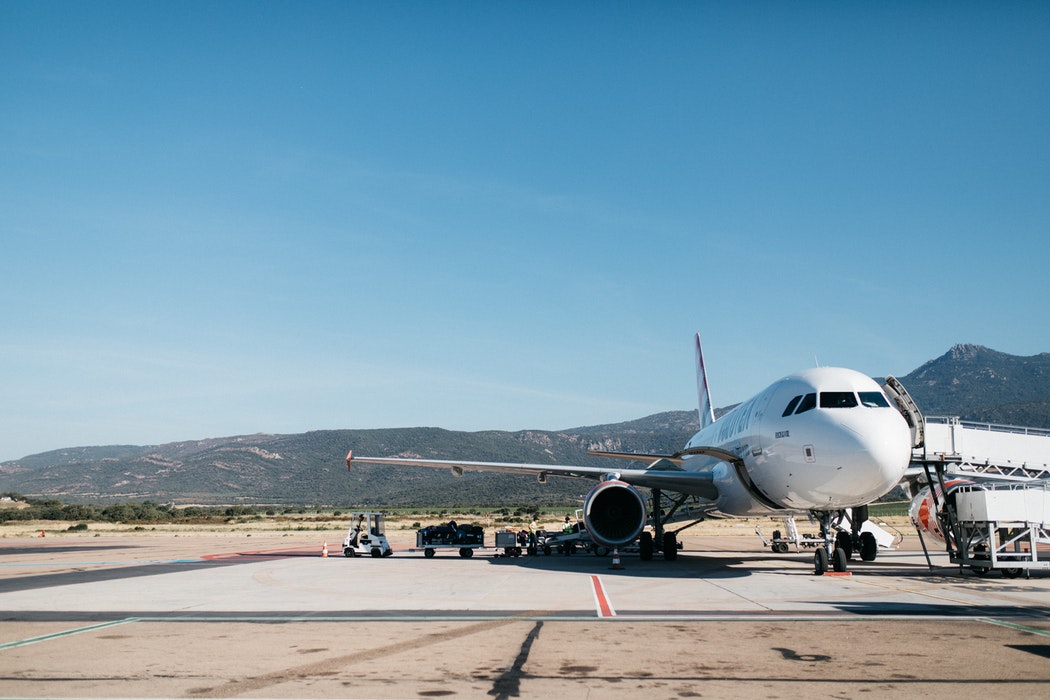
But you’ve heard it all before, right?
Climate change, global warming and carbon emissions have been on the agenda for years now and while slow progress towards greener alternatives has been made, it’s not been enough.
Unfortunately, people are becoming less engaged with these issues. At World Travel Market’s Responsible Tourism conference, the room for the talk on carbon resource efficiency was close to empty, compared to a less impactful talk on the government’s management of tourism an hour earlier which was full to the brim. Luke and I were two of about fifteen people who attended the talk on carbon efficiency.
WTM is a global event for the travel industry, which more than 50,000 industry travel professionals attend. The WTM programme even says that they “continue to innovate and follow trends to ensure we reflect the issues that concern the industry most;” yet despite the fact that 75-99% of the carbon impacts of tourism come from transport, so few of these attendees turned up to listen to a talk about one of the most pressing issues in the industry.
“Can industry drive sustainable change, or does it wait until the consumer demands it?”
There are very few travel industry professionals who can claim their business doesn’t cause harmful C02 emissions, whether they’re directly transport related or not. While airlines, cruise lines and tour companies directly contribute to C02 emissions from transport, hotels and other businesses who rely on tourism wouldn’t exist without the tourists brought over by air and ground transport.
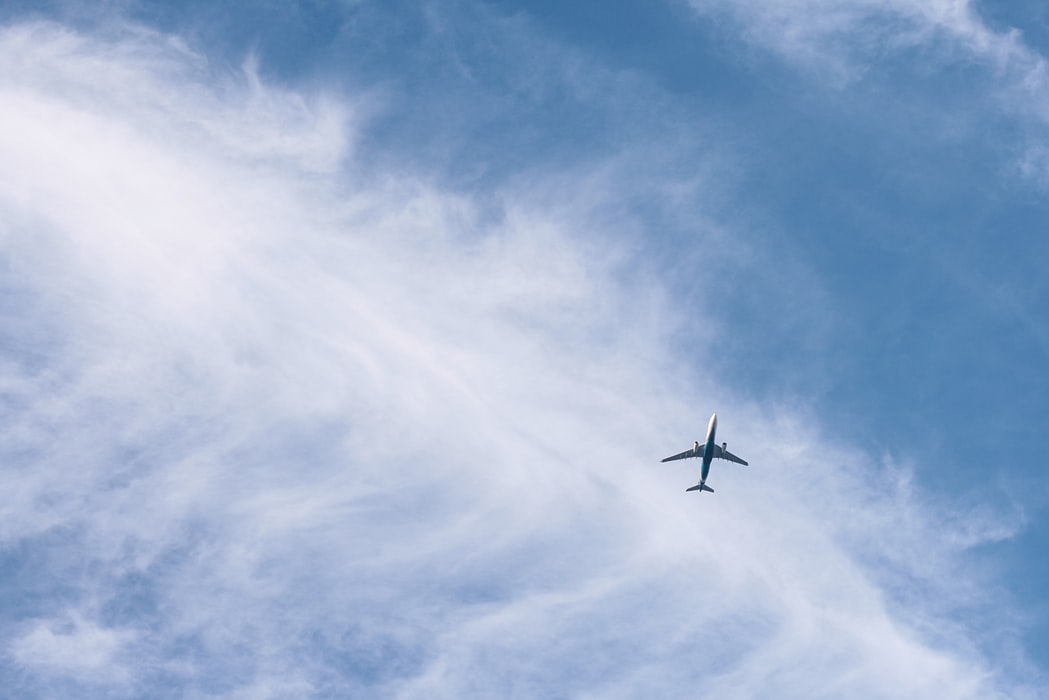
Should we stop air travel altogether?
Air travel may have a huge number of downsides, but air travel also has great benefits. Aside from the convenience, air travel connects isolated communities to the outside world and helps them build their economy through tourism, and it gives us all opportunities to experience, work with and learn from other countries and cultures.
Without air travel Luke and I would never have been able to live and teach English in Taiwan, to volunteer in Poland, to explore national parks in Costa Rica, contribute to local communities in Guatemala or learn about eco-farming in Thailand. Through our travels we’ve learned more than we ever would have sitting at home, and met incredible people along the way.
If we all want to continue travelling, then we need to rethink how we travel. It’s down to travellers, tourists, holidaymakers and anyone who takes a flight to take steps to be more sustainable, and ask the same of the companies who they travel with.
What can travellers do to reduce carbon emissions when flying?
Is air travel incompatible with a green lifestyle? And is there an ‘amount’ of air travel which is acceptable? While air travel can’t be called “green,” advancement in technology means that planes are more fuel efficient than ever before and airlines are increasingly paying attention to the situation. As travellers we can also think about what we can do as individuals to reduce carbon emissions when we do choose to take a flight.
- Travel Economy Class
We might all love the idea of first class luxury, but economy class is the more eco-friendly option. Business class and first class seats take up more space inside the plane, the seats are often more luxurious and therefore heavier, and the more complimentary stuff that you get the more weight that is on-board the plane.
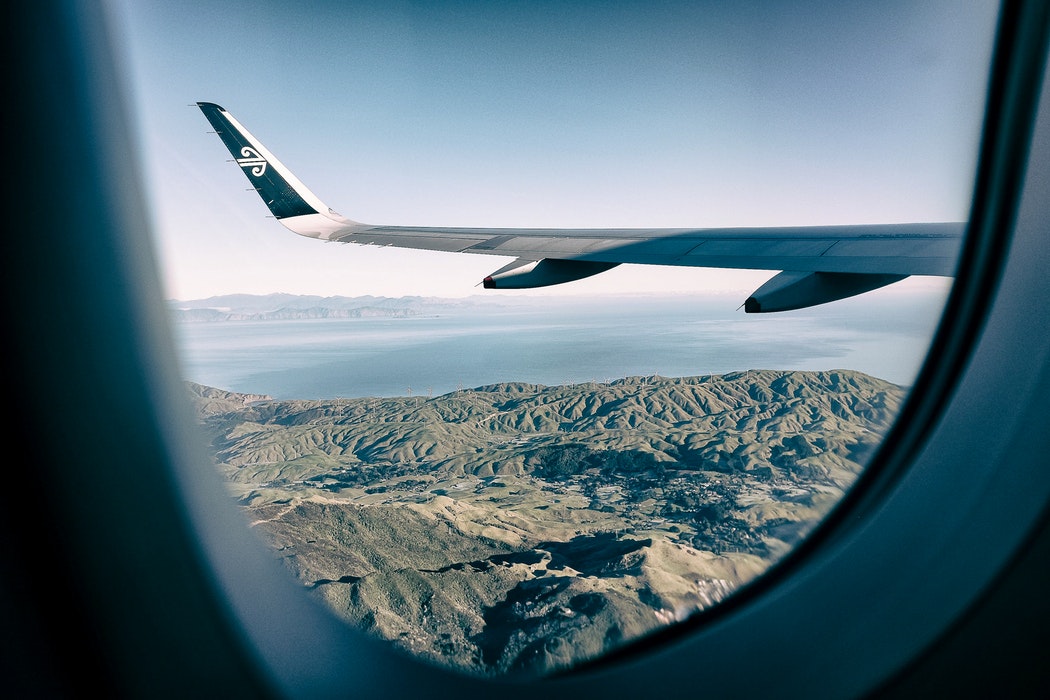
- Think About Budget Airlines
While people often assume that the budget flights are the less eco-friendly options, that’s not the case. Budget airlines are the more eco-friendly air travel options because they carry more passengers per flight and often have newer and more fuel efficient aircrafts. Read more about how travelling on a budget can make you a more eco friendly traveller.
- Eco-Aware Airlines and Carbon Offsetting
Airlines like British Airways and Virgin are providing passengers with ways to offset their carbon emissions amongst other sustainable initiatives. There are arguments for and against carbon offset schemes, but the idea is to encourage people to donate to environmental projects as a way of balancing out their carbon footprint. Read about how to carbon offset flights.

- Don’t Overpack, Keep Luggage Light
Do you really need that second jumper when you’re off for a week in Spain? Do you need a heavy pair of hiking boots or will trainers suffice? The more weight that aeroplanes and other vehicles carry, the more fuel they use and therefore the more greenhouse gases they emit. The lighter you pack, the better it will be for the environment. Here’s how to pack light.
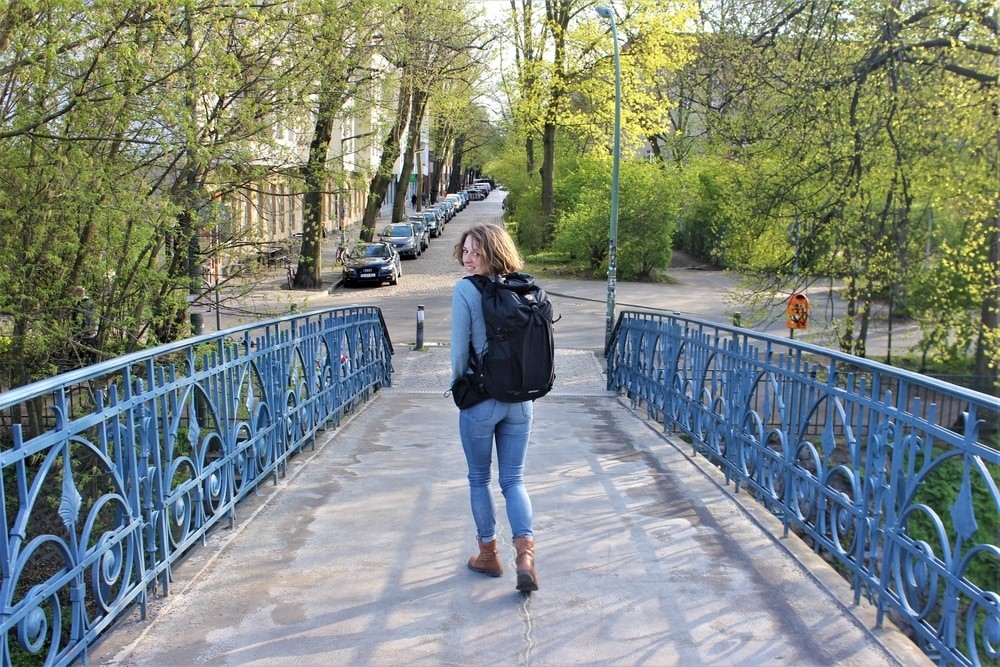
- Travel Longer
Though this may not be an option for everyone, if you can then taking one two week holiday is better for the environment than two one week holidays. If you’re a longer term traveller like me and Luke, it’s better to stay put in one area and travel through neighbouring countries than to crisscross across the world taking multiple fights.
- Ask Questions About Sustainable Air Travel
We might not realise it but actually airlines do have some incentive to be green because they want their business to exist in twenty or thirty years time. The problem is that capitalism seems incapable of long term thinking and has always favoured the short term pursuit of profits. The more we ask about sustainable air travel, the more likely airlines are to take notice of what consumers are concerned about and that’s when they’ll act.
While these changes all might seem like very little, all these small changes can eventually stack up and even be the driving force for bigger changes and more sustainable air travel.





Sharon
What a fantastic little piece that was both thought provoking and interesting to read.
I totally agree that the travel consumer needs to take the lead in this, asking the right questions and doing the right thing!:)
Nicholas
I’ll add one more suggestion to a thoughtful post: Take daytime flights instead of red-eye trips. http://news.nationalgeographic.com/news/2006/06/060614-contrails.html
Charlie on Travel
Thanks Nicholas, good shout!
John Williams (@eurapart)
Corrected version due to mistype on radiative forcing factor:
Charlie, you make some excellent points in your post. You also mention that a passenger flying economy on a low cost carrier emit a fraction of the carbon of a passenger in First Class.
I’d just like to add a few points of information.
The 2% figure for aviation CO2 emissions does not take into account radiative forcing. This is a complex subject but basically the IPCC use a multiplication factor of 2.7 for aircraft emissions at altitude compared to ground based emissions.
The article you link to about carbon offsetting is well worth reading carefully and perhaps following the links from that page. I’d also recommend watching “The Carbon Crooks” film if you get the chance. It is often shown on LinkTV.org. In 2009 ResponsibleTravel.com made the decision to stop offering carbon offsets, calling them a ‘dangerous distraction’. From personal experience ruling out carbon offsetting to salve my conscience made me much more aware of my emissions and lead me to stop flying except for emergencies.
A final point is that the airline industry is planning to expand expecting massive demand from the BRIC countries, yet I have not seen a convincing plan showing where the fuel is to come from.
Thank you for writing this article. I hope it encourages readers to research further.
I’ll end wit a reminder that reducing flying is the single biggest hitting action any frequent flyer can take to massively reduce their carbon emissions.
Byron
Or simply stop eating beef.
Katie Featherstone
This issue troubles me a lot too. It’s difficult to avoid all air travel unless you are entirely committed and have all the time in the world. I do try and cut it down as much as I can though. It feels a bit hypocritical to talk about sustainable travel otherwise.
Geoffrey Lipman
All seemingly logical comments …BUT…..they will not be the green growth solutions ….it will be for the travelism (travel &tourism supply,demand, infrastructure and service support) sector to become part of the progressively adapting societal change. WTM is an ok infinitisimally small part of the big picture…but it will be education, innovation and incentive that is the real driver in every community on the planet. 30 years might just be ok if we start now…oh yes and flying will grow green as part of this ….in fact my guess is that the technology will find ways to respond, along with new fuel variants and of course regulatory change stimulus.
Sarah
Hi! I seem to have missed the recommendation to choose direct flights instead of flights with multiple stopp-offs. This should make quite a difference in terms of emissions, right?
Charlie Marchant
Hi Sarine. Direct flights are definitely better if it’s possible. Landing and taking off burn the most fuel.
Aakansha
I have subscribed to your blog and really going to binge read all the valuable information you’ve put out there!
Love & Gratitude,
Aakansha
themavenlifestyle.com
Charlie Marchant
Amazing, hope you find more articles you love! Thanks for subscribing, Aakansha.